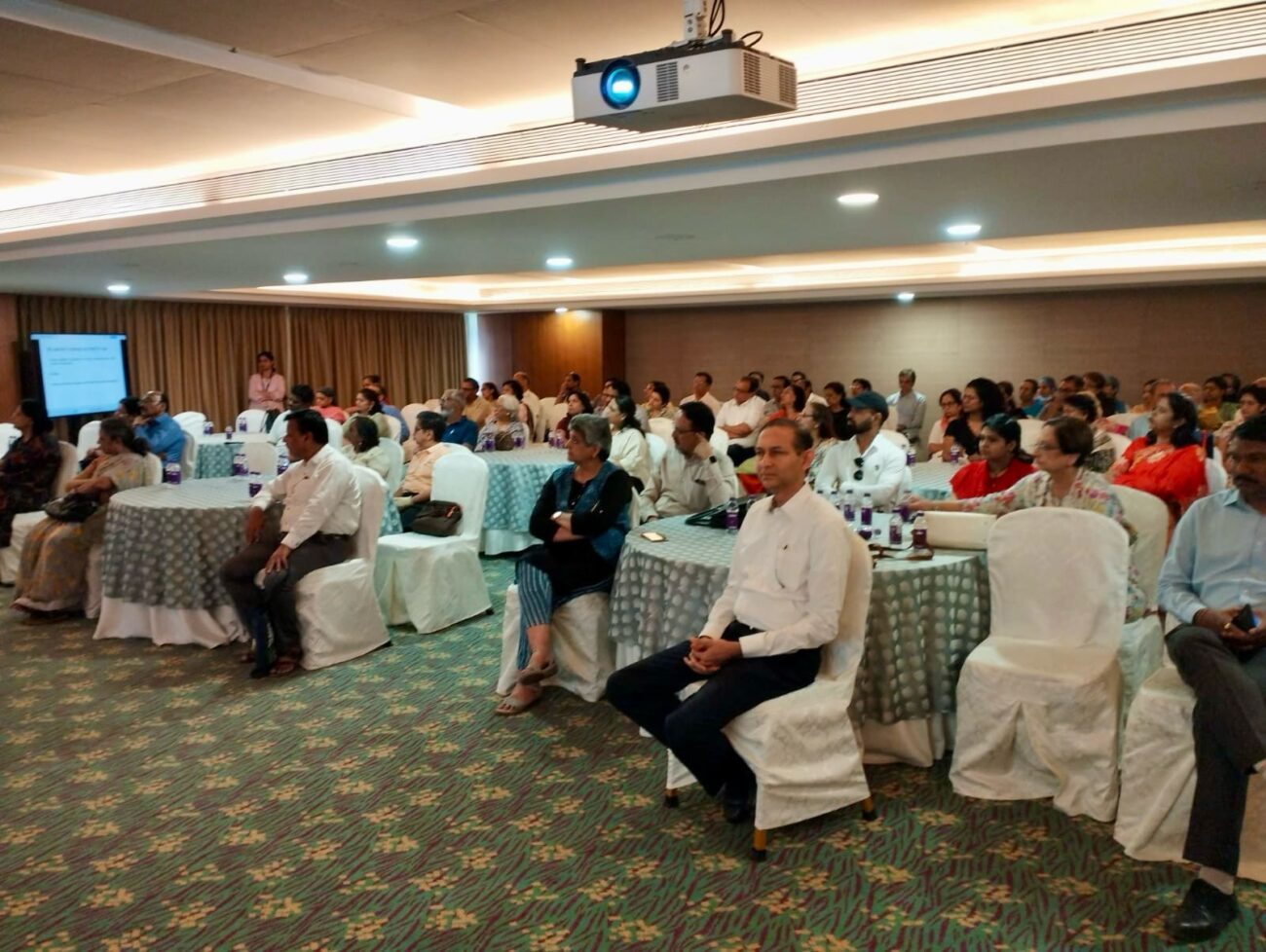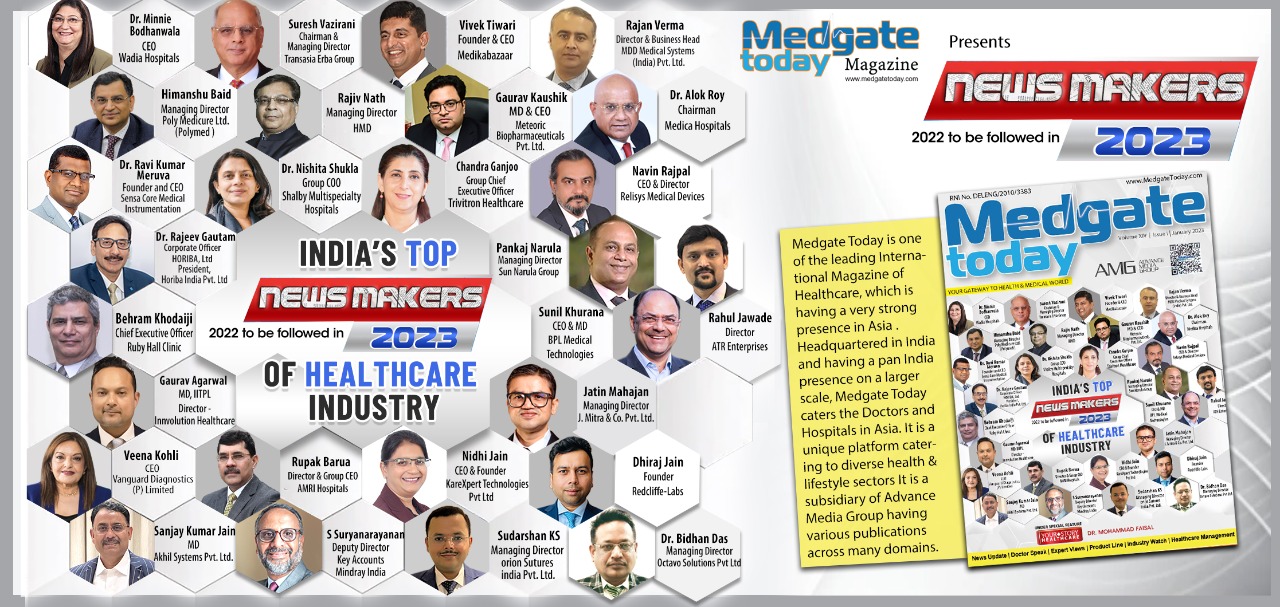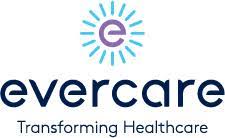Impact of COVID-19 on Indian Medical Value Travel Sector
COVID-19 crisis had led to suspension of inflow of foreign patients to India, which has adversely affected the Medical Value Travel business in India, leading to a complete and sudden cessation. The reduction in business of medical value travel
COVID-19 crisis had led to suspension of inflow of foreign patients to India, which has adversely affected the Medical Value Travel business in India, leading to a complete and sudden cessation.
The reduction in business of medical value travel is 100%, which implies that the Indian MVT operating private hospitals do not have any International patients traveling for treatment any more, as the government has withdrawn all existing visas and is expected to curtail the issuing of any new visas either, in the coming short-run. The expected loss in revenue would be an average 15-20% for Hospitals, some of the major tier one hospitals, this would be as high as 40-50%. This will be the expected damage if Indian and the world economy recovers from the pandemic, in the coming next month, the losses will exponentialize if the impact exceeds six months.
In previous last five years, India has been one of the leading destinations for Medical Value Travel (MVT) owing to competitive advantages in providing affordable world class quality curative treatments. For India, the dominant source countries have included SAARC, African and CIS Countries. Additionally, there have been a huge potential to attracting international patients from USA and UK countries by providing quality health care at affordable cost along with premium hospitality services.
Every year over one million patients travel to India (including patients for modern medicines, Ayurveda and wellness), generating over 3 billion USD per annum in forex. This market is growing at 22% CAGR and was expected to reach USD 6 billion by the end of 2022, generating valuable forex, large-scale employment and profitability in our Healthcare sector.
UN Conference on Trade and Development (Unctad) estimates the economic impact of Covid-19 at a minimum of $1 trillion in 2020. India’s immediate measures are crucial, and the new economic taskforce is a step in that direction.
Sectoral Impact and Losses:
While the current situation has led to a complete crisis for the MVT operating Hospitals , this (as a ripple effect) has also, adversely impacted support businesses such as lodging and boarding facilities, empanelled by the hospitals, taxi services for international patients, language translation services, home / hotel healthcare delivery services (including physiotherapy services), medical supplies to foreign patients, etc, which largely depend upon patients who come to India using MVT Facilitators’ services.
The segments of the sector, such as; Meetings, Incentives, Conferences and Exhibitions — have been also hit severely. Some of the major international business events have also been cancelled, which has led to huge economic losses.
Max Hospital Delhi shared that Max Hospital Delhi receives foreign patients for treatment from more than 25 countries. Among these nations, Iraq and Afghanistan together comprise of 38% of the total volume of patients traveling to their Hospital for treatment, bringing around 28% and 12% of the total revenue earnings from MVT, respectively.
However, in the prevailing scenario, the traffic of foreign patients has been curtailed completely, meaning MVT business has come to a standstill. Further, for major source countries that are themselves reeling under the COVID-19 stress, would have a delayed permission in traveling to India, keeping in mind their domestic conditions with respect to the pandemic control. For eg. Iraq and Afghanistan are also, severely impacted by the COVID-19 and have significant positive cases, this will mean a longer time period curb on patients traveling from these countries to India.
Radiant Lifecare, shared that under the current economic crisis caused by COVID -19 in India, would lead to an approximate loss of revenue for organised tertiary care MVT hospitals of USD 28-30 million, for MVT single speciality hospitals, this loss will be around USD 28-30 million, for Ayurveda services hospitals, this will be USD 27-29 million approximately. Further, the loss to hotels associated completely with MVT business, will be estimated at USD 25-28 million. This expected loss is an estimate only for the month of April 2020, and is expected to increase by approximately 10-15% for May 2020.
Impact on industry is given as follows:
- Most of the Indian Hospital operating in MVT business have a percentage of revenue from MVT at around 10-40%. This depends totally on inbound medical tourism are facing huge losses.
- Individual and medical healthcare facilitating companies whose total income depends on medical tourism are affected by Coronavirus.
- Hotels and Guest Houses who are catering to needs of medical travellers have been affected.
- Individual language interpreter whose income is dependent on medical tourism.
Key Findings of FICCI’s Industry Survey to Assess Impact of Coronavirus
FICCI has attempted to assess the immediate impact of coronavirus on businesses across the country through conducting interactive sessions and survey amongst the industry members. The survey reveals that besides the direct impact on demand and supply of goods and services, businesses are also facing reduced cash flows due to slowing economic activity which in turn is having an impact on all payments including to those for employees, interest, loan repayments and taxes.
According the survey results –
• A significant 53 per cent of Indian businesses indicate the marked impact of the Coronavirus pandemic on business operations even at early stages.
• The pandemic has significantly impacted the cash flow at organisations with almost 80 per cent reporting a decrease in cash flow.
• The pandemic has had a major impact on the supply chains as more than 60 per cent respondents indicate that their supply chains were affected. The companies also highlighted that they are closely monitoring the situation and expect the impact of the pandemic on supply chain to worsen further.
• Organisations have brought in a renewed focus on hygiene aspects concerning the pandemic. Almost 40 per cent have put in place stringent checks on people entering their offices and disinfection. Nearly 30 per cent organisation have already put in place Work-from-Home policies for their employees.
• Nearly 42 per cent of the respondents feel that it could take upto 3 months for normalcy to return.
Medical Value Travel Industry, which relies completely on the movement of foreign patients to India, will have a ripple adverse effect on the various interlinked sectors, such as hospitality, tourism, workers providing language interpretation services, rejuvenation and wellness services.
Around 90% of the margin of MVT business is driven and supported by the Indian Medical Facilitators. They play an important role as intermediary between patients and clinicians/hospitals and seamlessly manage the medical journey of a patient from the first communication till the return journey to the home country.
With the visa and travel restrictions, the patient inflow has come to a sudden cessation. In this context, the business for the Medical Facilitators has come to a standstill and is expected to take an year to revive, keeping the current situation into consideration.
Hence companies operating in these sectors are finding it difficult to operate and exist in the current prevailing circumstances.
The survey undertaken by FICCI has also noted some suggestion from the industry members, they have also shared suggestions on possible actions that the government and RBI can take to contain the spread of coronavirus in India and mitigate the immediate concerns of the Indian companies. The survey also focusses on the challenges that members of Indian industry are facing either due to decline in consumption demand or due to supply chain disruptions owing to visa and travel restrictions for MVT patients, and the suggestions received from the industry to address their present concerns.
Recommendations:
- Restoration of SEIS scrips for duty credit of 10% to Hospitals, Tourism, Travel & Hospitality Industry
- Medical Facilitator and MVT operating hospitals (that primarily have 50% or more business through MVT) must be provided with a necessary financial stimulus and support; to keep them afloat till this crisis is over and prevents the industry in going bust. This will allow Medical Facilitators and MVT operating Hopsitals to immediately restart patient generation as soon as visa restrictions are lifted; it will empower the industry to build a relatively quick traction.
- The removal of fees for any upcoming licenses and permit renewal for the MVT associated support sectors such as hospitality and travel industry across states. Hotels pay a hefty bar license in addition to many taxes like property taxes. The validity period of these taxes and licenses be extended by at least one year without further payments.
- A deferment for twelve months of all statutory dues whether GST, Advance Tax, PF, custom duties, excise fees, water and power charges, licenses, bank guarantee across hospitality, travel & aviation industry.
- Involve COVID impact council along with FICCI to support the MVT industry.
- Reduce restrictions on international patients coming to India as soon as possible, with adequate measures to ensure such patients don’t spread Covid-19.
- Request for Immediate Tax Measures to be announced by the Government amid outbreak of COVID-19
There has been tremendous turmoil in economic situation in India and world-over, because of outbreak of Corona virus (‘COVID-19’), which has severely impacted businesses & continues to do so. Many countries are closed throughout the Globe, because of the pandemic. Companies across India, have asked their teams to completely work from home. All of this has made it extremely inefficient and in fact not possible for the Companies to comply with various tax compliances due under the Income Tax, GST Laws, Customs Laws etc. In the current scenario, we earnestly request for the following tax measures to be immediately announced by the Government –
- All tax compliances having deadlines in the month of March to April, 2020 to be extended to June 30, 2020.
- Extension for due date of GST returns under section 39 of CGST Act, 2017 due in the month of March and April and payment of tax by at least three months.
- All scheduled hearings (including responses to 133(6) notices issued under the Income Tax Act, 1961) should be automatically postponed.
- Appeal filing dates should be extended or circular to be issued regarding automatic grant of condonation for delayed filings.
- Waiver of interest on delayed payments of taxes viz Advance Tax, TDS etc which are falling due on 15th March onwards.
- Vivaad Se Vishwas Scheme – Extend the due date of March 31, 2020 for payment of disputed tax to a reasonable date, say June 30, 2020, thereby giving the taxpayers sufficient time to evaluate the Vivaad Se Vishwas Scheme, file the application and make necessary arrangements for payment of taxes in these times of severe liquidity crunch.
- Removal of mandatory pre-deposit of 20% of tax demand for grant of stay by the Income Tax Appellate Tribunal (‘ITAT’).
- GST holiday for a year for the most impacted sectors like aviation, Travel and Tourism sector including tour packages and reservation services rendered by travel agencies.
- Both TDS provisions under Section 194O and TCS under section 206C of the Income Tax Act proposed in the Budget 2020 should be rolled back.
- Mandatory submission of PAN under Liberalised Remittance Scheme (LRS) of RBI on spending in foreign currency towards foreign travel should be done away with.
- Deferment of Income tax and GST payments and returns for at least six months for the most affected sectors like aviation, tourism etc.
- Due date of filing revised income tax return for financial year 2018-19 be extended; extension for filing of application of APA for transactions starting from 1st April, 2020, filing TDS return, etc.
Other relaxations required for smooth functioning of the businesses :
- In order to tide over the current situation, the current Financial Year should be extended uptil 30 April 2020
- While SEBI has exempted listed companies from observing the maximum stipulated time gap between two meetings for the meetings held or proposed to be held between 1st December 2019 and 30th June 2020. Similar exemption is required under section 173 of the Companies Act, 2013.
- Relax the procedural requirements for convening and conducting VC meeting under rule 3 of the Companies (Meetings of Board and its Powers) Rules, 2014, for a period of 6 months as companies may not be able to strictly follow such guidelines due to various restrictions being implemented as part of COVID-19 containment measures.
- In case where General Meetings have been convened by corporates to be held between 23 March 2020 and 30 April 2020; allow such companies to transact matters through postal ballot. Requirement of 30 day notice of postal ballot should also be waived.
- Companies are also finding it difficult to ensure compliance with the requirement of filing documents on MCA portal in view of current restrictions. Accordingly, an additional period of 30 days should be provided to ensure timely compliance (without any penalties being imposed).
- Shareholders’ requests to Companies and their Registrar and Transfer Agents (based on KYC and other paperwork) are also difficult to execute within the stipulated time, hence ticking of the clock may be stopped for such actions. These include requests for dematerialization, duplicate shares, etc.
- Transfer of funds to IEPF and such other time bound corporate actions are also getting delayed due to difficulty in closure of accounts. Timelines need to be appropriately relaxed.
- Filing of Form FC-GPR with RBI relating to allotment of shares to persons resident outside India cannot be accomplished within the prescribed time as documents are required to be uploaded along with the form.





